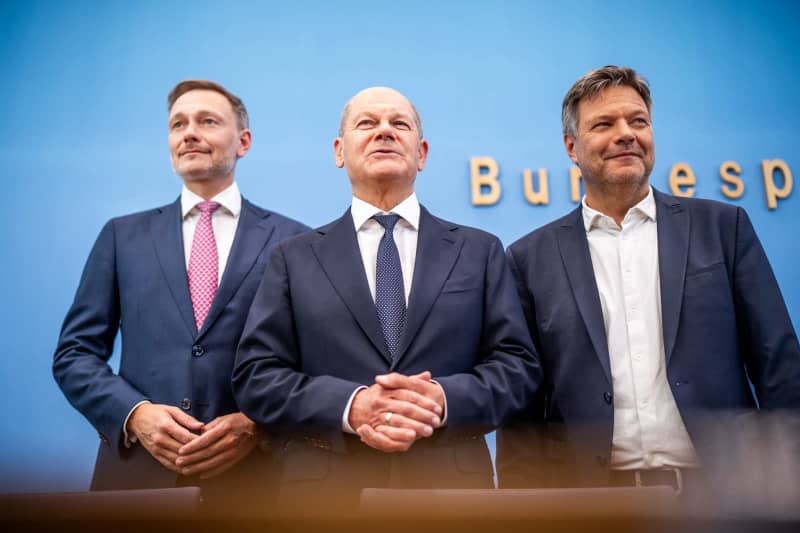
The leaders of Germany’s coalition government have agreed to a new compromise on the 2025 budget, a government spokesman said in Berlin on Friday.
The new agreement – one month after Chancellor Olaf Scholz and his coalition partners reached a preliminary deal in early July – primarily involves the reallocation of funds for the state-owned Deutsche Bahn railway company.
This will reduce the planned 2025 deficit in government expenditure by €4.5 billion ($4.95 billion) to €12 billion.
Scholz’s coalition hopes to make up the deficit by stimulating economic growth, thereby raising government revenue, instead of increasing borrowing.
“The requirements of the debt brake in the constitution will continue to be met,” the spokesman said, referring to strict rules against ordinary budget deficits.
Scholz told dpa the draft bill would now be forwarded to the German parliament.
DeutscheBahn at heart of new deal
Germany’s coalition leaders – Scholz of the Social Democratic Party, Economy Minister Robert Habeck of the Greens and Finance Minister Christian Lindner from the Free Democratic Party – have argued for months over the government budget for 2025.
The key sticking point was a €30-billion hole in government finances, which could not be covered by extra borrowing due to Germany’s complicated debt brake.
A breakthrough in July saw the leaders agree to a deal that cut the planned deficit to €17 billion without major spending cuts, but economic experts said the figure remained too high, leading to a new round of negotiations that concluded on Friday.
The cornerstone of the latest deal is the financing of Deutsche Bahn, which has suffered from years of under-investment.
The agreement shaves a further €4.5 billion off the planned deficit by replacing subsidies for Deutsche Bahn with additional equity and a €3-billion loan.
“We have decided to invest in transport infrastructure with additional capital and loans for Deutsche Bahn and to make further general savings,” Scholz told dpa.
The deal is now set to be examined in the Bundestag and Bundesrat, Germany’s legislative chambers.





